Premium Only Content

Truth Will Light the Way...
The Importance of Challenging Lies and Misinformation.
In an age where information is more accessible than ever, the challenge of distinguishing truth from falsehood has become increasingly complex. Lies and misinformation spread rapidly through social media, traditional news outlets, and word of mouth, shaping public opinion and influencing decisions on a global scale. The importance of challenging these distortions of truth cannot be overstated. Misinformation can erode trust in institutions, manipulate public perception, and even endanger lives. Therefore, individuals and societies must actively engage in critical thinking, fact-checking, and open discourse to combat the pervasive influence of falsehoods.
The Consequences of Misinformation.
The consequences of unchecked misinformation are profound. In politics, the spread of false narratives can influence elections, polarise societies, and undermine democracy. When people are misled by deceptive information, they may vote based on lies rather than informed choices, leading to governance that does not truly reflect the people's will. Similarly, in public health, misinformation has had dire consequences. The spread of false claims about vaccines, diseases, and treatments has contributed to public distrust in medical science, leading to preventable deaths and the resurgence of illnesses once thought to be under control.
On a societal level, misinformation can create division and conflict. Misleading narratives often play on emotions, fear, and prejudice, fueling hatred and violence. Historical revisionism, propaganda, and conspiracy theories have been used to justify discrimination, war, and oppression. Without critical engagement and scepticism, societies become vulnerable to manipulation by those who seek to exploit ignorance for power or profit.
The Role of Critical Thinking and Media Literacy.
One of the most effective tools against misinformation is critical thinking. The ability to analyse sources, question narratives, and seek evidence-based conclusions is essential in distinguishing fact from fiction. Education systems must prioritise media literacy, teaching individuals how to evaluate the credibility of sources, recognise logical fallacies, and differentiate between opinion and fact.
In addition to individual efforts, collective actions such as fact-checking initiatives and independent journalism play a crucial role. Fact-checking organisations provide valuable resources for verifying claims, while responsible journalism adheres to principles of accuracy, impartiality, and accountability. Encouraging diverse perspectives and open discussions can also help challenge misinformation by exposing falsehoods to scrutiny and fostering a culture of truth-seeking.
The Responsibility of Technology and Social Media Platforms.
Technology companies and social media platforms bear a significant responsibility in curbing the spread of misinformation. Algorithms that prioritise sensationalism over accuracy have contributed to the rapid dissemination of falsehoods. These platforms must implement stronger measures to detect and flag misleading content, promote credible sources, and empower users with tools to verify information. While concerns about censorship exist, there is a fundamental difference between moderating false information and restricting free speech. Striking a balance between these priorities is crucial in maintaining both truth and freedom of expression.
The Ethical Imperative to Challenge Falsehoods.
Beyond the practical consequences, there is a moral and ethical obligation to challenge lies and misinformation. Truth is the foundation of justice, trust, and progress. Allowing misinformation to thrive enables corruption, exploitation, and harm. By speaking out against falsehoods, individuals contribute to a more informed and fair society. The courage to question, investigate, and present facts should be encouraged, not discouraged.
Conclusion.
Challenging lies and misinformation is not merely an intellectual exercise; it is a necessity for the health of democracy, public safety, and societal harmony. By cultivating critical thinking, supporting responsible journalism, holding technology platforms accountable, and fostering ethical responsibility, individuals and institutions can combat the detrimental effects of misinformation. In a world where truth is constantly under attack, the pursuit of truth must be relentless. Through vigilance and education, we can build a society where honesty prevails over deception, and knowledge triumphs over ignorance.
-
 DVR
DVR
Randi Hipper
1 hour agoBITCOIN PRICE FACES VOLATILITY AS ALTCOIN TAKE A HIT! LATEST MARKET UPDATE
4.62K1 -
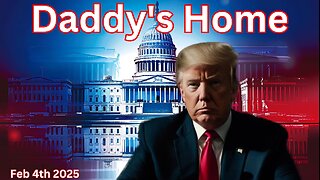 LIVE
LIVE
Wendy Bell Radio
5 hours agoDaddy's Home
13,674 watching -
 1:16:53
1:16:53
Graham Allen
3 hours agoCanada FOLDED!! Trump Wins Trade War With The 51st State! + The Department Of Education Is DONE!
34.8K39 -
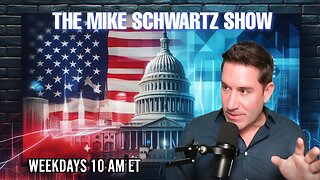 LIVE
LIVE
2 MIKES LIVE
1 hour agoTHE MIKE SCHWARTZ SHOW with DR. MICHAEL J SCHWARTZ 02-04-2025
309 watching -
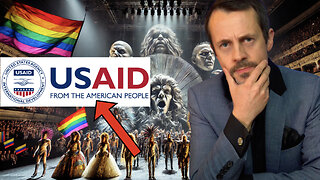 19:40
19:40
Neil McCoy-Ward
2 hours ago🚨 I’ve Never Seen Anything Like It! (I Spent The Day Reading The ‘USAID’ Payments Log - WTF!?)
7.13K10 -
 7:53
7:53
Misha Petrov
16 hours agoThe CRINGIEST Moments From The Grammys
22.9K91 -
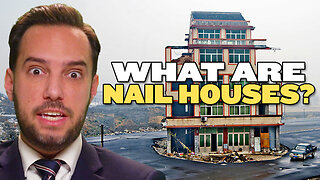 5:57
5:57
China Uncensored
20 hours agoLiving in China Comes With Some Risks
58.9K27 -
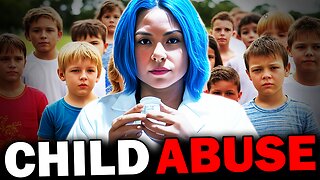 12:32
12:32
Bearing
1 day agoAustralian Gender Clinic Caught SECRETLY Transitioning Kids 🤬🤬
46.8K79 -
 4:34
4:34
AlaskanBallistics
1 day ago $1.81 earnedFosTech Echo Trigger
27.1K14 -
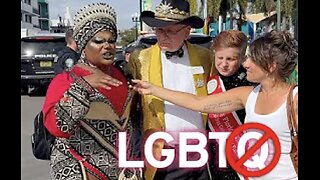 9:10
9:10
ariellescarcella
14 hours agoI Asked People To Toss Out An Identity : The Queer Alphabet Is OVER
20K10